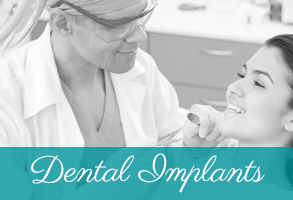

A beautiful smile can have a positive impact on your self-confidence and self-esteem.

What is a hygienist?
Dental hygienists are specially trained to work with the dentist in giving care to patients.
They play an important role in dental health care and are mainly concerned with gum health, showing people correct home care and applying preventive materials to the teeth and gums.
What is the hygienist’s role in the practice?
The hygienist’s main role is to professionally clean the teeth for the patient. This is usually called scaling and polishing. However, perhaps their most important role is showing the patient the best way to keep the teeth free of plaque. The hygienist will work with your dentist to provide care tailored to your needs.
Can a hygienist do anything else?
Dental hygienists are now able to take dental x-rays. The dentist will use these to help diagnose problems and decide on their possible treatment. All hygienists that take x-rays will have had the necessary training and hold a certificate.
If the dentist suggests that you have fissure sealants, he may refer you to the dental hygienist because it is one of the tasks they are trained to carry out.
Does every practice have a hygienist?
Not all practices have a hygienist. But more of them now offer this as part of the service to patients, using part-time and full-time hygienists. Hygienists can now work when a dentist is not there, as long as the patient has been seen by the dentist and the treatment is prescribed for the patient.
Why is this treatment important?
Regular professional cleaning combined with your home care will help keep your mouth healthy. A clean and healthy mouth will improve your appearance, help you to keep your teeth and give you fresh breath.
Can a hygienist help prevent dental disease?
This is what the training of the hygienist is all about. Carefully removing the deposits that build up on the teeth (tartar) and teaching you how to prevent it reforming again, will go a long way to slowing the progress of gum disease.
By discussing your diet, and recommending other preventive measures, your tooth decay can also be slowed down.
What other help can be given to adults?
Adults can also benefit from having fluoride applied. They can also have anti-bacterial gels and solutions applied under the gum to kill the bacteria causing gum disease.
Another very important part of the hygienist’s work is giving regular instruction and advice on home care. The hygienist may also suggest giving up smoking, as this will reduce staining. Recent research has also shown that smokers have more gum disease and lose more teeth than non-smokers.
What help is available for children?
Children can benefit from having their teeth polished. The hygienist can also apply fluoride gels and solutions to help prevent decay. The permanent back teeth can also benefit from having the biting surfaces sealed. This is done by applying a special plastic coating to the biting surface soon after they come through. For further information refer to the Foundation’s leaflet Tell Me About Pit and Fissure Sealants.
Why doesn’t the dentist do this work?
Some dentists will carry out this type of work. However, many now recognise that the hygienist has been specially trained to carry out scaling and polishing and can spend longer with you. They are also expert at teaching you how to look after your teeth and gums. Often the hygienist will spend a number of appointments getting the gums healthy ready for the dentist to restore the teeth with crowns and fillings.
Will the treatment hurt?
Scaling and polishing is usually pain-free. However, if you do have any discomfort the hygienist can use anaesthetic creams, or give you some local anaesthetic. It is important that you let the hygienist know at the time so they can help with your pain.
Is hygiene treatment expensive?
You can have the treatment under the NHS or privately. It is important to find out the cost before you start, by getting a written quotation.
Some practices will have a price list displayed at reception giving a guide to the prices charged for the service. Under the NHS rules, the price is fixed by the government.
What can I do to help the hygienist?
You can do a great deal to help yourself and the hygienist, as you are in control of your mouth between visits to the practice.
Your hygienist will have shown you how to remove plaque with a toothbrush and fluoride toothpaste. You will also have been shown how to clean between your teeth with floss, tape or little brushes.
There are many oral care products now available including specialist toothpastes, powered toothbrushes and mouthwashes. Your hygienist will recommend those that are best for you. If you are unsure, look for the products carrying the British Dental Health Foundation approved logo. This means the products have been clinically tested and the claims on the packaging proven to be true.
We recommend you follow three simple steps to help keep your teeth and gums healthy.
· brush your teeth twice a day with fluoride toothpaste
· cut down on how often you have sugary snacks and drinks
· visit your dentist at least once a year.
Cutting down the amount of sugar in your diet, and the number of times that you eat during the day, can help to reduce decay. Your hygienist can help you by looking at your decay problem, your diet and by making some recommendations for you to consider.
Chewing sugar-free gum after meals can also help to prevent tooth decay. Chewing gum makes your mouth produce more saliva, which in turn cancels out the acid produced in your mouth after drinking and eating.